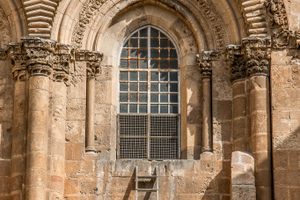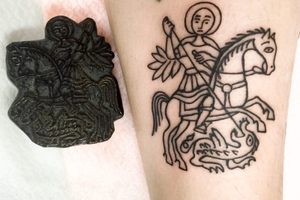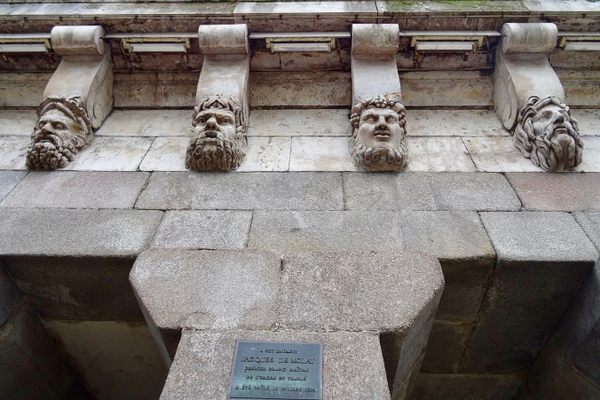About
In Jerusalem’s Old City today, you can find a uniquely obscure historical relic—the sole surviving pilgrimage tattoo business, Razzouk Ink. It’s a place where ancient artifacts meet contemporary machines, rich history intersects with modern technology.
Just inside the Jaffa Gate in Jerusalem’s Old City, you can duck down the second side street to the left, finding respite from the beating sun and leaving the bustle of the crowded main square. A tiny shop, almost dwarfed by its prominent sign, lies across a quiet cobblestone road. If you didn’t know anything about the incredible, centuries-long history of the family who runs this particular shop, the sign’s tagline might cause you to do a double-take: “Tattoo With Heritage Since 1300” it reads.
For 700 years the Razzouk family has been tattooing marks of faith. Coptic Christians who settled in Jerusalem four generations ago, the family had learned the craft of tattooing in Egypt, where the devout wear similar inscriptions. Evidence of such tattoos dates back at least as far as the 8th century in Egypt and the 6th century in the Holy Land, where Procopius of Gaza wrote of tattooed Christians bearing designs of crosses and Christ’s name. Early tattoos self-identified indigenous Christians in the Middle East and Egypt. Later, as the faithful came to the Holy Land on pilgrimage, the practice expanded to offer these travelers permanent evidence of their devotion and peregrination.
Upon entering Razzouk Ink, you will discover a blend of stone walls and exposed beams lending antique character to the space, while the sterile tattoo parlor hides behind a wall. A museum-like case holds family antiques, and an exhibition of pictures on the walls offers glimpses into the family’s past. Pilgrims’ accounts dating to the late 16th century offer a glimpse into the era’s tattoo culture, and how purveyors such as the Razzouks must have tattooed back then, with sewing needles bound to the end of a wooden handle.
In the 21st century, tattoos have emerged as popular travel souvenirs, but Razzouk Ink offers a truly unique experience—a link to hundreds of years of history through a visceral transaction of bloodletting and pain.
Related Tags
Community Contributors
Added By
Published
August 24, 2016
Sources
- http://www.atlasobscura.com/articles/inside-the-worlds-only-surviving-tattoo-shop-for-medieval-pilgrims
- https://www.google.com/maps/place/Razzouk+Ink+-+Tattoo+with+Heritage+in+Jerusalem/@31.777183,35.227552,19z/data=!4m12!1m6!3m5!1s0x150329ce66f177eb:0xfd76fee44c2d0d2a!2sRazzouk+Ink+-+Tattoo+with+Heritage+in+Jerusalem!8m2!3d31.7771819!4d35.2281005!3m4!1s0x150329ce66f177eb:0xfd76fee44c2d0d2a!8m2!3d31.7771819!4d35.2281005














































